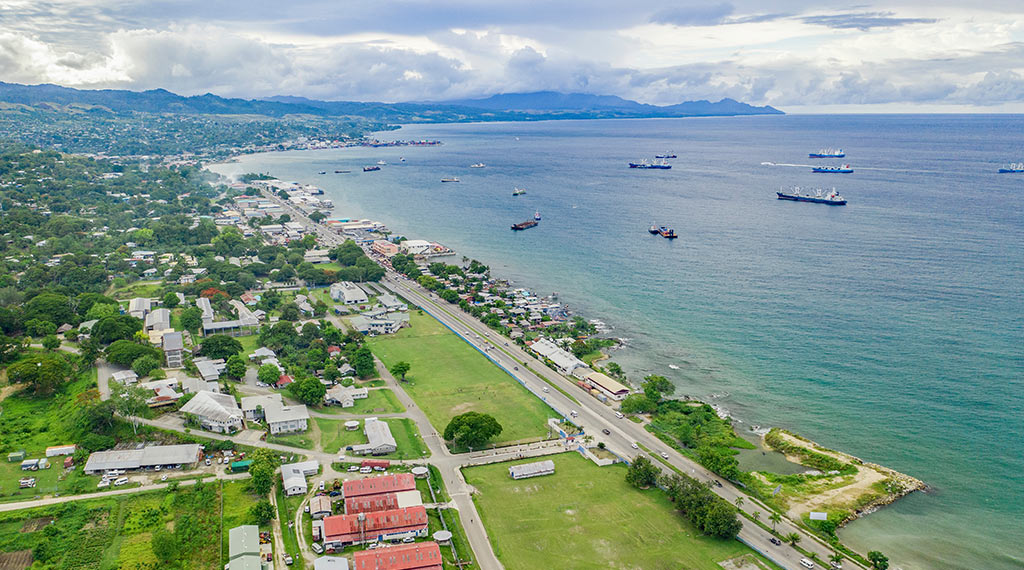
The Americans went to the Solomon Islands almost two weeks ago. It was a high-power delegation that included Biden’s National Security Council Indo-Pacific “Asia Czar” Kurt Campbell, the State Department’s Asia-Pacific head Daniel Kritenbrink, and senior officials from USAID and USINDOPACOM.
But there was an air of desperation to it all—given that the Solomon Islands government had just signed an agreement with China that potentially allows unfettered Chinese military access to the Solomons. This is the first such “military” deal Beijing has signed with a Pacific nation.
The U.S. team met with Solomon Islands Prime Minister Manasseh Sogavare and expressed concerns about the deal with the Chinese. That ship has sailed, however.
Sogavare will gladly take whatever “goodies” the Americans have to offer. But he won’t be persuaded or “paid” to revoke the Chinese deal. And a handsome aid and development package won’t change his mind. Indeed, it might even bolster his standing in certain quarters—as the guy who got the Americans to pay attention to the Solomon Islands—and to pay up.
Sogavare has cast his lot with Beijing and might be counting on the Chinese to keep him in power since he and the Solomons–China deal are widely unpopular with large parts of the public, including the important western and Malaita provinces.
Sogavare would probably lose the next election—scheduled for 2023—and so it’s feared he will try to postpone it.
So What’s Coming?
There’s a real risk of the Solomon Islands becoming a one-party state run by a corrupt regime that keeps power by violence and a Chinese presence. And this will mean civil war once again in the Solomons—with all attendant misery for the citizenry.
There’s only a short window to avoid this.
The American visitors told Sogavare that the United States will have “significant concerns and would respond accordingly” if China sets up a permanent military presence, power-projection capabilities, or a military installation.
Sogavare might be forgiven for thinking that Washington’s “respond accordingly” means a furrow-browed expression of “serious concern.”
And Chinese leader Xi Jinping, who has staked his prestige on the Solomons deal, might think so.
But the United States has a few options. For starters, it might do what it should have done a long time ago. Pay attention to the Solomon Islands (and the other Pacific Island nations), and don’t outsource things to the Australians and the New Zealanders.
That means having a real presence. The United States closed its embassy in Honiara, the capital of the Solomon Islands, in 1993 but has promised to reestablish an embassy and fast-track the process. It should probably fast-track it some more. In State Department terms, “fast-track” can mean “within the decade.”
Washington should immediately get diplomats on the ground. And not just any foreign service officers who happen to be available and willing to go. Instead, select gifted officers able to influence and who understand political warfare. Require them to produce—not just write cables and host delegations from Washington.
Next, get to know the locals and listen to them. The Solomons are more than just Sogavare and his cronies. There are opposition politicians, provincial leaders, religious organizations, and women’s groups. All are immensely important domestically, and all are distressed with what Sogavare is doing—especially given that as the “opposition,” they are likely targets for any repression he and Beijing have planned.
- The U.S. and Iran: Adding to the list of fiascos? - February 3, 2026
- Forget Greenland — securing Diego Garcia should come first - January 27, 2026
- Trump Makes Greenland Deal With NATO: Chinese Military Pilots Trained In US - January 22, 2026
